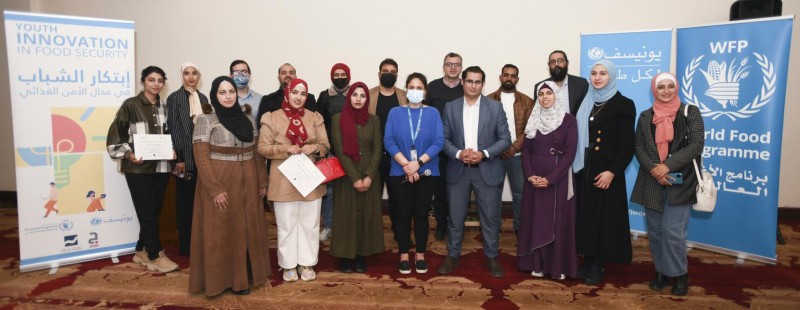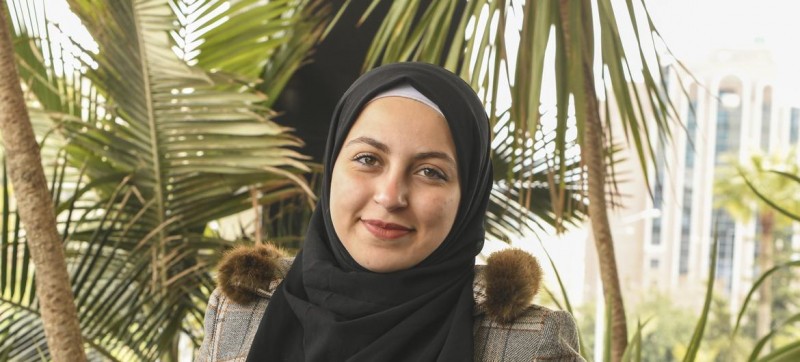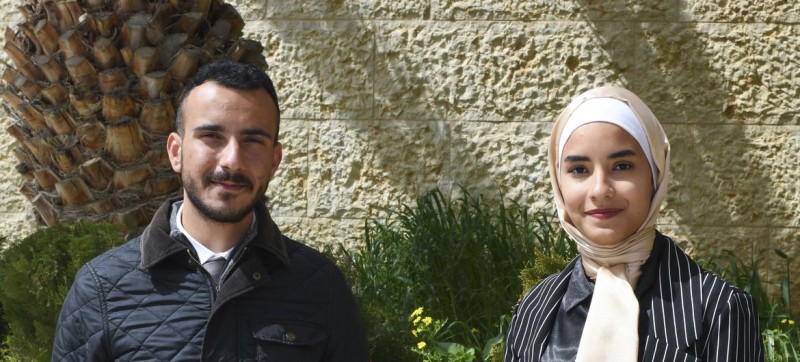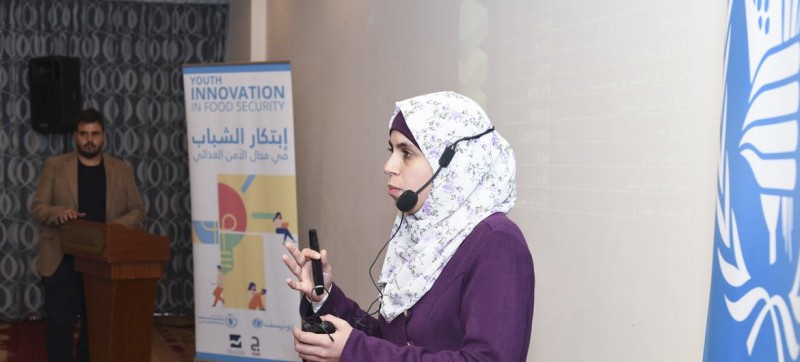Participants in the WFP/ UNICEF Youth in Food Securiy Innovation event, Landmark hotel, Amman, Jordan. In Jordan, where many struggle to find enough to eat, young people are finding creative ways to tackle food insecurity, and create sustainable, environmentally friendly employment, with support from a UN innovation programme. Jordanians are dealing with multiple overlapping challenges including slow economic growth, high youth unemployment, water scarcity and increased cost of living. With 63 per cent of its population under the age of 30, Jordan has one of the youngest populations in the world, and youth engagement and mobilization is crucial to finding solutions to food insecurity. This is why the UN Children’s Fund (UNICEF) and the World Food Programme (WFP) launched the Youth in Food Security Innovation Programme, which saw a group of young Jordanians, aged between 18 and 26, presenting a wide range of ideas, from addressing the problem of solid waste, to recycling fruit and vegetable peel. As part of the project, the participants received training on the implications of food insecurity, the opportunities and challenges directly linked to food security, the role of technology in shaping the future of food, and strategies for changing the traditional food chain. Aya Kraik, a participant in a WFP/ UNICEF youth innovation project in Jordan. Aya Kreik, an architecture student in Amman is one of those young innovators. Ms. Kreik and her team succeeded in converting farms waste into organic fertilizers rich in nutrients, reviving the soil and encouraging farmers to avoid the use of chemical fertilizers. “My innovation idea aims to increase plants’ immunity to diseases and helps the soil to retain water in a large proportion, which reduces the amount of irrigation water needed. A modern method for treating waste and does not produce greenhouse gases”. she explains. “We started our project at the beginning of the pandemic. With the lockdowns, we thought of ideas to become self-sufficient when it comes to food.” “The Jordanian Capital, Amman, is a very crowded city and there are no available spaces for farming”, she adds. “In addition, not all people are interested in healthy and organic food, because of lack of awareness and high prices. So, we were determined to raise awareness about the importance and benefits of organic food”. “I am proud of where I got to today. We are about to start the first multiple-output, women-led farm in Jordan,” declares Ms. Kreik. “We, young people, need to think out of the box and come up with new ideas related to environmental sustainability”. Alaa Al-Hijazeen and Nourhan Al Gharabli, participants in a youth innovation project by UNICEF/ WFP in Jordan. Banking and Finance graduate Alaa Al-Hijazeen and Business Intelligence student Nourhan Al Gharabli launched a startup that produces self-watering and self-feeding plants using a new type of hydrogel, consisting of self-absorbing polymers, that can transform moisture in the air into pure water. “Our goal is not to make money”, says Alaa, “but to leave an impact and change people’s lives. Climate change is having direct impacts on food security, the air we breathe and the water we drink. We all need to take action.” “Our next step is to turn this idea into a reality. And we are considering further exploring environmental businesses. Our environment is a great resource, and we can use it sustainably,” she adds. Alaa Thalji,participant in a WFP/ UNICEF youth innovation project in Jordan. Agricultural engineer Alaa Thalji participated in the innovation training. Her project entails recycling the peels of fruits and vegetables to produce a chemical polymer that removes 99 per cent of heavy metals from water. “I am an agricultural engineer, specializing in water treatment. I came up with the idea during my second year at university. I took a class called Environmental Chemical Pollutants, that introduced us to the dangers that pollutants pose to our health, and another class called Drinking Water Treatment, where our professor kept telling us how water containing heavy metals cannot be used for drinking purposes. So, I thought about the many water sources that we unfortunately cannot make use of, and I started working on a chemical polymer that is organic and safe,” says Ms. Thalji. 

Reviving the soil

Self-feeding plants

From peel to polymer
Youth in Food Security Innovation Programme
Related Posts
WEJ PROJECTS
© 2009-2025, World Economic Journal. All Rights Reserved. Republishing permitted with attribution and active hyperlink to the original source.

